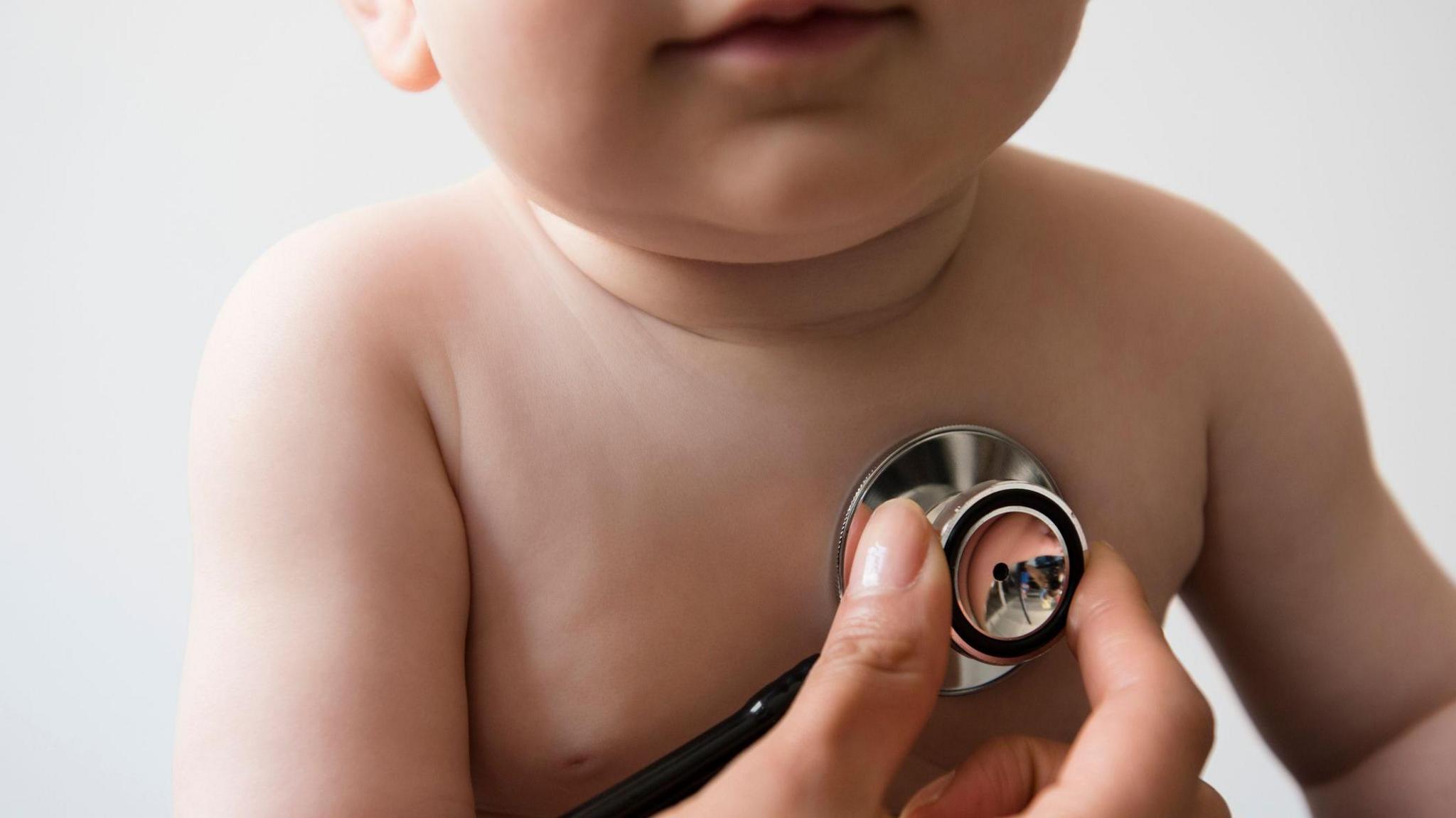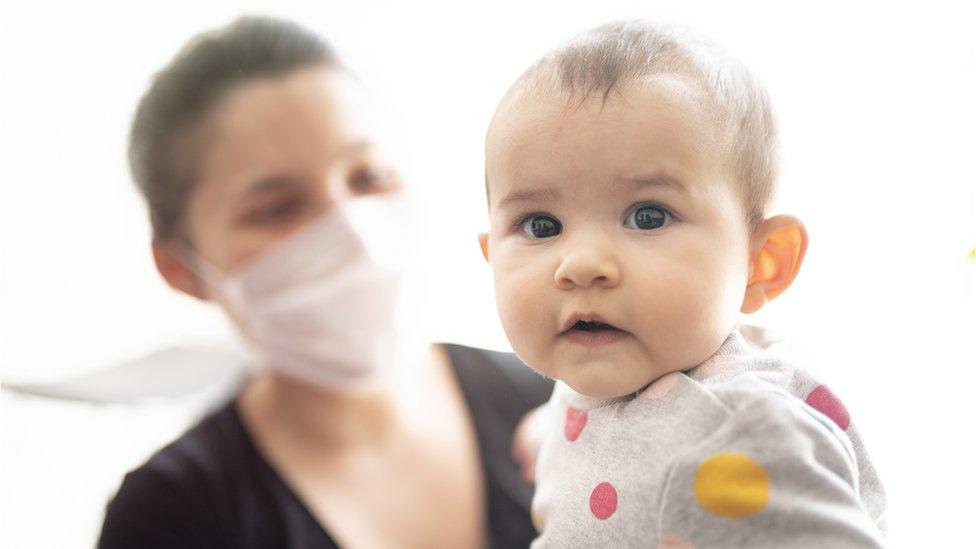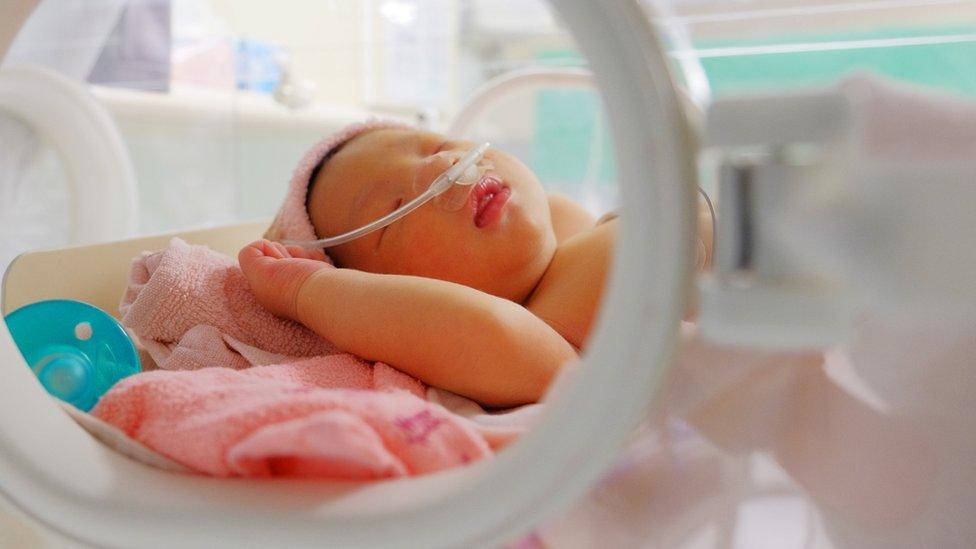Baby dies from whooping cough as cases increase

- Published
A child under the age of one in Scotland has died after developing whooping cough, Public Health Scotland has confirmed.
Provisional figures from the agency said there had been more than 5,200 confirmed cases from January to July this year.
Just 73 cases were reported in Scotland in 2023, but cases have been rising recently across the UK and Europe.
The last whooping cough death recorded in Scotland was in 2015.
Also known as pertussis or the "100-day cough", experts say the infection is a cyclical disease with peaks seen every three to five years.
The last significant outbreak saw 3,084 cases detected over a two-year period in 2012 and 2013.
Nine whooping cough deaths in England as cases rise
- Published11 July 2024
'Whooping cough has been relentless - we haven't slept for weeks'
- Published4 June 2024
The latest report from PHS found that most cases were in those aged 15 years or older.
However, the highest incidence rate - the rate of new cases over a specified period for those at risk - is for those aged between 10 and 14 years old.
It is the first new monthly report from PHS which will run "for as long as whooping cough continues to circulate at the currently observed levels".
The UK Health Security Agency previously said a steady decline in uptake of the vaccine and the very low number of infections seen during the Covid pandemic were both factors in the recent rise in cases.
Dr Sam Ghebrehewet, head of immunisation and vaccination at PHS, told BBC Scotland News that infections would probably not peak until the autumn.
What is whooping cough?
The first signs are similar to a cold, with a runny nose and sore throat.
After about a week, the infection can develop into coughing bouts that last a few minutes and are typically worse at night.
Young babies may make a distinctive "whoop" or have difficulty breathing after a bout of coughing.
The bacterial infection spreads through coughs and sneezes.
People of all ages can catch whooping cough, but it is most serious for young children and babies.
Nine babies have died from whooping cough in England since November 2023, according to the UK Health Security Agency.
Its latest figures for England show 2,591 confirmed cases in May, with a total of 7,599 since January.
PHS has encouraged pregnant women to ensure they are immunised against infection.
New babies cannot be immunised until they are at least eight weeks old.
- Published17 May 2024

- Published10 May 2024
